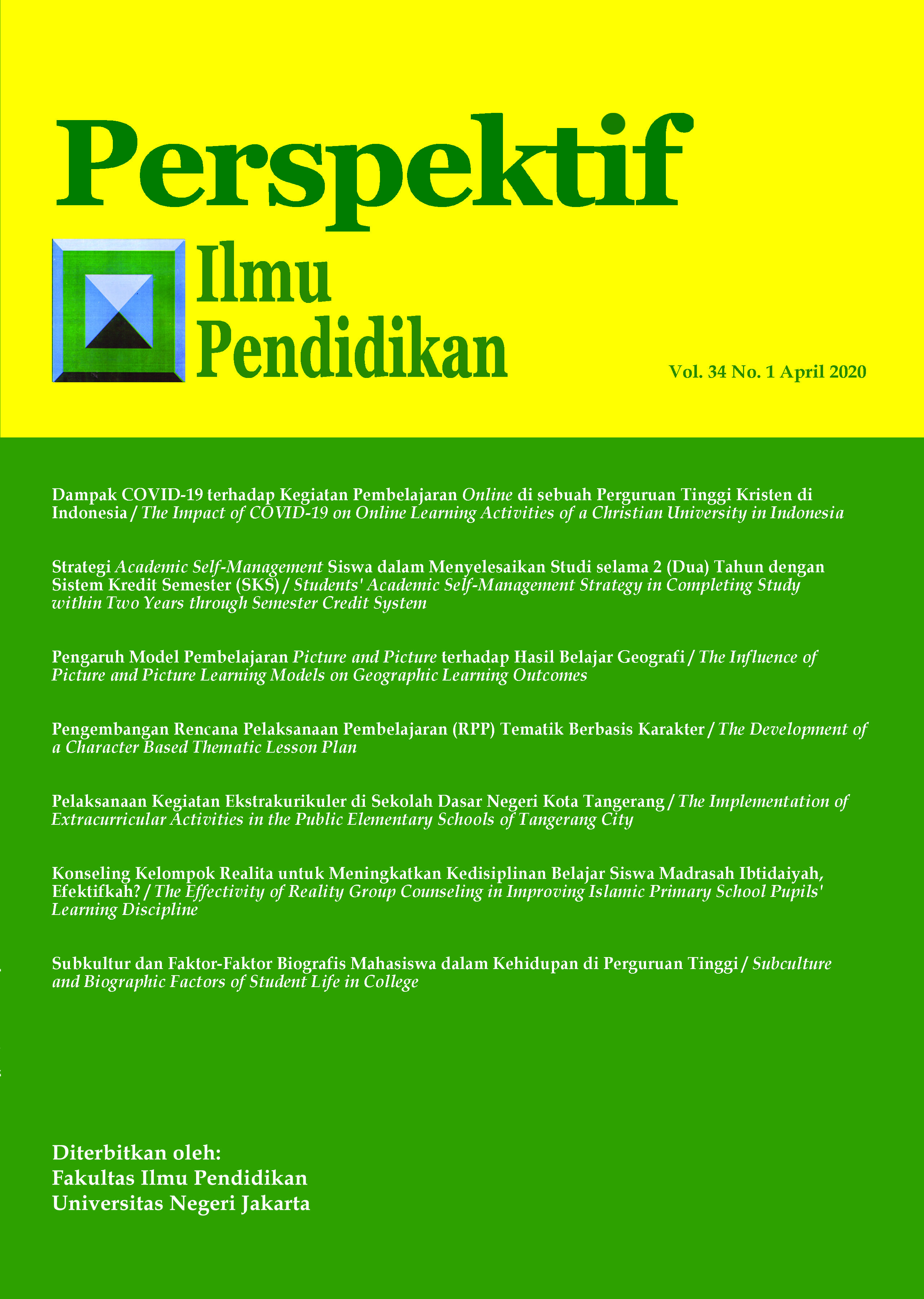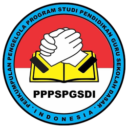PENGEMBANGAN RENCANA PELAKSANAAN PEMBELAJARAN (RPP) TEMATIK BERBASIS KARAKTER
THE DEVELOPMENT OF A CHARACTER BASED THEMATIC LESSON PLAN
DOI:
https://doi.org/10.21009/PIP.341.4Keywords:
character, development, thematic lesson plan, the application of character educationAbstract
The application of Character Education (PPK) is an education policy that aims to implement the values of religiosity, nationalism, independence, mutual cooperation, and integrity. To be implemented in learning, it is necessary to develop lesson plans that are integrated with those values. The aim of this study was to produce a prototype of thematic Lesson Plan (RPP) that is specific to students in grade 2 of elementary school. This study is a simplified educational Research & Development (R&D). This study was carried out from June to October 2019, which took place at SD Muhammadiyah 24 Jakarta Timur. Product validation was done by experts and small groups. The results of the study in general show that the quality of the prototype based on the validation by instructional design and material experts were 76% and 98%. Additionally, based on the small-scale trials the quality of the prototype was 90%. These results indicate that the prototype of the Thematic Lesson Plan (RPP) developed can be applied in the learning process of grade 2 elementary schools’ students so that it can have an accompanying impact that will produce character of religiosity, nationalism, independence, mutual cooperation and integrity in accordance with The application of Character Education (PPK). Further research is needed to perfectly develop the prototype.
Downloads
Published
How to Cite
Issue
Section
License
Authors who publish with this Journal agree to the following terms:
- Author retain copyright and grant the journal right of first publication with the work simultaneously licensed under a creative commons attribution licensethat allow others to share the work within an acknowledgement of the work’s authorship and initial publication of this journal.
- Authors are able to enter into separate, additional contractual arrangementfor the non-exclusive distribution of the journal’s published version of the work (e.g. acknowledgement of its initial publication in this journal).
- Authors are permitted and encouraged to post their work online(e.g. in institutional repositories or on their websites) prior to and during the submission process, as it can lead to productive exchanges, as well as earlier and greater citation of published works.
-
Users/public use of this website will be licensed to CC BY-NC-SA Creative Commons Attribution-NonCommercial-ShareAlike 4.0 International License












